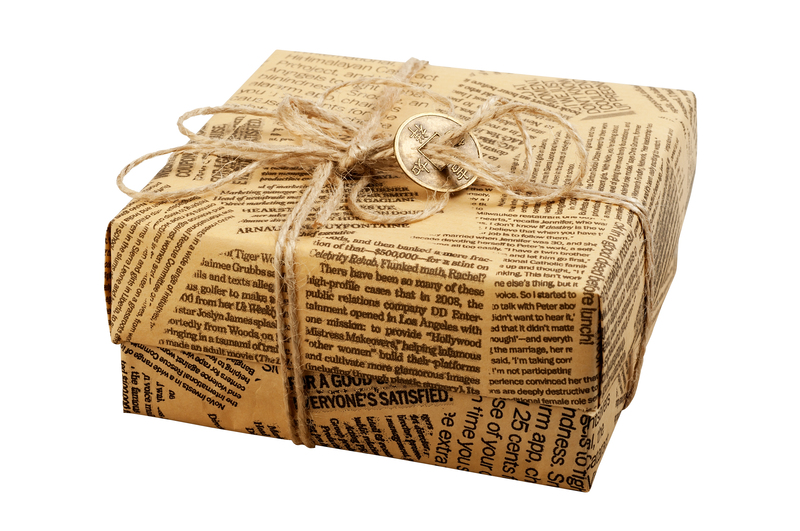Slash Disposal Costs for Bulky Waste with These Simple Hacks
When it comes to bulky waste disposal, expenses can quickly add up. Whether you're moving, renovating, or simply decluttering your home, large items like furniture, appliances, and yard debris can feel like a hassle to manage--especially when you see those quotes from waste management companies! But before you shell out big bucks or get overwhelmed, let's dive into some proven, effective ways to save money while handling bulky waste. In this comprehensive guide, you'll discover clever strategies to slash disposal costs for bulky waste and keep your wallet happy.
Understanding Bulky Waste: What Qualifies?
Before learning how to save, it's important to understand what bulky waste actually is. Local governments and waste haulers define it as oversized items that can't fit inside a standard bin. Examples typically include:
- Old sofas, mattresses and recliners
- Broken appliances such as refrigerators, washers, and dryers
- Renovation debris (doors, carpets, cabinets)
- Yard waste (tree branches, logs, and large shrubs)
- Electronics like TVs or computers
These items are too hefty for curbside pickup, so specialized collection or drop-off options are required--and that's where costs can snowball. Luckily, you can cut down on bulky item disposal expenses with the following expert hacks.

1. Leverage Municipal Bulk Pickups
Check Your City's Free or Low-Cost Options
Many cities offer free or discounted bulk waste pickups as part of residential services. Often, these occur on scheduled days--monthly, quarterly, or even annually. Check your local sanitation department's website or call to learn about:
- Allowed bulky items (some cities exclude electronics or certain appliances)
- Pickup limits (e.g., number of items, total weight or size per collection)
- Required preparation (removal of doors from fridges, bundling branches, etc.)
Pro Tip: Sign up for notifications or reminders so you never miss your city's collection day! This no-cost pick-up can help you reduce bulky waste disposal costs dramatically, especially for items like couches or old beds.
2. Donate Gently Used Items to Charity
Turn Trash Into Treasure for Someone in Need
If your furniture or appliances are still in usable condition, why not donate them? Not only can you help others, but many non-profits offer free pick-up! Options can include:
- Habitat for Humanity ReStores (great for furniture and building materials)
- The Salvation Army and Goodwill
- Local shelter or thrift stores
Make sure you check which items each organization accepts and whether they'll collect large items for free. You could even get a tax deduction for your donation--it's a double savings!
3. Sell or Offer Large Items Online
Earn Cash or Eliminate Hauling Costs
For items that are still functional or could be repurposed, consider selling or listing them online. This strategy minimizes the amount of bulky. junk you have to dispose of--and can even earn you money!
- Use platforms like Facebook Marketplace, Craigslist, OfferUp, or Freecycle.
- Mention that items are "curb alert" or "must haul away," so buyers handle removal.
- For gently used appliances, list model and working condition for transparency.
Hacks:
- Take clear, well-lit photos.
- Price to move--aim for quick removal over maximum profit.
- List for free if you want it gone ASAP; many folks will pick up unwanted furniture or even project pieces for upcycling.
4. Break Down and Recycle Whenever Possible
Divide and Conquer to Save on Fees
Waste disposal fees often depend on the size and weight of items. By breaking down large pieces:
- Remove legs from tables, disassemble bed frames, or roll up carpets.
- Cut branches or wood debris into smaller sections.
- Separate metal, wood, and fabric for specialized recycling.
Many landfills or recycling centers offer free drop-off for certain separated items, like metals or electronics. Look up your nearest EcoDepot, electronic waste (e-waste) center, or private recycler to find out what's accepted.
5. Share a Dumpster or Hauling Service
Team Up With Neighbors for Volume Discounts
Dumpster rentals and junk removal services can be pricey if you're handling it solo. But what if you split costs with neighbors, family, or friends? A shared dumpster rental means you fill one container and pay a fraction of the price. Here's how to organize it:
- Coordinate a cleanout date with neighbors or co-workers.
- Rent the appropriate dumpster size for the group's volume of waste.
- Divide costs equally and arrange a convenient drop-off/pickup spot.
Some companies even offer discounts for group bookings or repeat business. If you don't need a roll-off dumpster, consider sharing a pickup truck rental (trips to the dump are more cost-effective this way).
6. Utilize Specialized Recycling Events
Seize Free Drop-Off Opportunities
Many communities hold seasonal events where residents can bring large or specialty items for free or reduced cost disposal. Examples:
- Spring/Fall clean-up days
- Electronics recycling events
- Hazardous waste drop-offs (paint, chemicals, batteries)
Bulletin boards, city websites, and local newspapers often post about these collection drives. Mark your calendar and plan your decluttering accordingly--you'll slash bulky waste disposal rates by avoiding regular landfill fees.
7. Repurpose or Upcycle Bulky Items
Give New Life to Old Materials
Creative DIYers know that with some imagination, yesterday's trash can become tomorrow's home decor or utility piece. Upcycling projects don't just save you disposal costs; they also reduce landfill waste and beautify your home. Try these ideas:
- Turn a headboard into a garden bench
- Reuse wooden pallets for storage or furniture
- Convert dresser drawers to under-bed storage units
- Fashion old windows into wall mirrors or picture frames
Don't forget, local makers and artists might want scrap wood, metal, or parts from appliances for their own projects. Post "free to good home" listings on neighborhood apps or social media groups!
8. Negotiate with Private Haulers
Get the Best Price Before You Book
If you must use a private bulk waste disposal company, don't be shy--negotiate! Get quotes from at least 3 companies. Be sure to ask about:
- Discounts for multiple items or multiple loads
- Lower rates for pre-disassembled items
- Flexible pickup dates (companies may lower prices for less busy times)
Tip: If you only have a couple of items, ask if they can "add on" to an existing route for a reduced price, instead of scheduling a separate trip.
9. Minimize Disposal Volume: Rethink What's Truly Bulky
Sometimes, items seem too large for regular trash but can be broken down to standard bin size. Remove stuffing from furniture, break appliances into smaller components, and always check if curbside pickup will accept these items if they're properly prepared.
This hack is ideal for mattresses (many can be cut apart, springs and fabric separated), old carpets (rolled and tied), and modular furniture. Use heavy-duty trash bags when appropriate.
10. Plan Ahead to Prevent Costly Surprises
Time is Money: Avoid Rush Fees
Being proactive always pays off. If you know large-scale disposal is coming--such as before a move or big renovation--schedule pickups, collections, or drop-offs well in advance. Avoiding last-minute solutions prevents you from paying premium rush or emergency fees.
- Start your decluttering weeks ahead of the need-by date.
- Reserve disposal services, dumpsters, or coordinate group cleanouts.
- Time your cleanup around city events or special free collection windows.
Top Bulky Waste Disposal Cost-Saving Mistakes to Avoid
To maximize your savings, steer clear of these common errors:
- Paying for unnecessary pickups. Don't call a hauler for items your city will remove for free.
- Overloading containers. You may incur fines if your load exceeds legal limits or is not sorted correctly.
- Ignoring recycling rules. Dumping electronics with regular waste can mean steep penalties in many areas--always sort!
- Last-minute decluttering. You're more likely to overpay without time to explore lower-cost options.

Frequently Asked Questions About Bulky Waste Disposal Savings
Can I leave bulky items at the curb on normal trash day?
In most cities, no. Regular trash pickup usually excludes large items unless you schedule a bulky item collection in advance. Always check local rules before putting anything extra at the curb.
What happens if I illegally dump bulky waste?
Illegal dumping can result in heavy fines or even criminal charges, depending on local laws. The risk is never worth it--use the hacks above to dispose of items cheaply and legally.
How do I dispose of hazardous bulky materials?
Hazardous bulky waste (e.g. refrigerators with Freon, TVs, chemicals) often requires special handling. Many cities hold regular hazardous waste collection events for safe, free disposal--never put these in the general waste stream.
Is it better to rent a dumpster or use a junk removal service?
It depends on your volume, timeline, and physical ability. For ongoing renovation debris or huge quantities, a dumpster is often more cost-effective. For a few large pieces you can't move solo, professional junk removal can be worth the extra fee. Always compare costs and read reviews.
Conclusion: Slash Bulky Waste Disposal Fees with Simple Solutions
While disposing of large items might seem costly and inconvenient, applying these simple strategies will let you slash disposal costs for bulky waste with ease. Your best approach involves:
- Taking advantage of free or city-subsidized bulk pickups
- Donating, selling, or upcycling whenever possible
- Efficiently breaking down and sorting materials
- Timing your disposal to align with collection events and volume discounts
- Negotiating and comparing all your options
By planning ahead, collaborating with others, and tapping into community resources, you can dramatically reduce bulky waste disposal expenses and move forward with a cleaner, more organized space.
Remember, smart and eco-friendly disposal benefits your budget--and the planet!